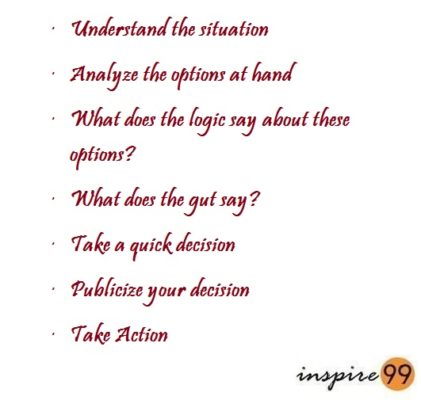Time Management Skills: The ability to manage time is one of the most important skills to boost your productivity. A huge task list and little time are some of the most common problems. In this article, we break down the qualities of time management to be able to control your time and thus reduce associated stress.
In previous articles, we spoke about having enough time to do the things that matter the most to you. Ultimately time management skills are about ensuring that the most important and impactful actions in your life have the necessary time.
Why are Time Management Skills important?
Time Management includes clear planning and conscious control of time for your priorities. It is a great way to increase your effectiveness, productivity and efficiency. Your productivity skills help you to attain more in a limited time. Time management skills are important for the following reasons.
- Helping you prioritise time to ensure that you have enough time for all important projects
- Making sure that you have the opportunity to make sure of the quality of your output
- Prevents you from missing key opportunities because you’re busy
- Allows you to control your time, thus reducing stress
You can find a detailed presentation talking about how to manage time in a single PPT covering things such as prioritisation, multitasking and delegation amongst other techniques. In this article, we talk about the major blocks which constitute time management.
Prioritisation
Prioritisation is one of the most important time management skills to master. No matter which role you are working in, you must be able to prioritise your daily workload. Too many people waste their time on urgent things while important things suffer. The most important part of this skill is saying NO to some things so that you have time for the most important items. Some of the common methodologies for prioritisation are:

Eisenhower Matrix allows you to segregate your to-do list based on urgent vs important items. It gives you a clear matrix to identify and an objective mechanism to deploy at times of confusion about priorities.
4D’s of time management talks about key skills such as delegation and deferring some tasks. In other words, you can also call this deferment procrastination. But the key difference is that this deferment is purposeful and with a plan to tackle it at a future date.
80-20 or Pareto rule – 80% of your results come from 20% of the tasks. Focus on these high-value tasks. This prioritisation can be as simple as you differentiating something like either an 80 or a 20 segment, thus enabling you to mark tasks based on priority.
The last one I’ll talk about is simple – must, should or nice to have segregation. This isn’t as sophisticated as the other time management methodologies, but can certainly give you powerful results to manage your daily lists.
Defer or deny some tasks
Prioritisation is one of the top time management skills, which goes hand in hand with saying No. Although it is not very easy to say No to people, you ought to carve out time for yourself. It is not about being rude to people, but about being respectful of your time. This is one of the most valuable time management skills that you can possess to carve out your time effectively.
You will not be able to do everything! To do the most important things, you have to find a way to either delegate or deny some other activities which demand your time. Most times these activities come in the guise of something urgent. Take a step back and prioritise it. Make a list of all your tasks and identify which one gets compromised because of the new event.
After all, your time is limited and you must spend it very wisely to get the best results.
Delay Urgent/Instant requests
One of the key time management skills is to stay away from the temptation of instant answers. With the advent of slack, MS Teams and other collaboration tools, the term ‘Quick Question’ has been famously abused. I’ve never seen a quick question being quick.
As much as I respect being available to answers, it also disrupts your planned activities during the day. Try to push people to book times in your calendar. At least this way, you can show transparency about how your time is being utilised. Even if it is your boss, unless something is urgent and cannot wait, ask your colleagues to send a meeting invite to have a focussed discussion.
The biggest advantage of delaying immediate requests is that it allows people to collect their thoughts and avoids unnecessary meetings at times. However, make sure that you don’t do this at the cost of collaboration or being perceived as unapproachable.
Engage Focussed Time
Focussed time is in the news lately. Particularly, when work from home has become the new norm, it’s been difficult to maintain full control of your time. We’ve heard complaints from people about too many meetings ruining their productive time.
Break down your day into blocks of personal time. These times can be set aside for important projects where you cannot afford disruptions. Block them in a different colour if you have to and make sure that you tell everyone about their relevance.
It doesn’t mean that it will be never be disturbed, but people will at least be conscious and try to avoid disturbing you at these times.
Delegate work actively
You’ll not be able to complete everything on your own. This is precisely why working with people or a team is very valuable. Better time management skills are achieved when you’re able to delegate work effectively. Steer away from Micromanagement which is another way of saying – ‘ I want you to do something, but I don’t trust you’ll do a good job’.
Imagine how that would make someone feel when they’re working with you. Will that motivate them to work at a high quality? If you’re someone who has control issues, try to actively work towards it. Delegation can start with small tasks and you can slowly build it further as you improve your confidence in your team.
Plan for Free Time
I’ve been guilty of booking my calendar without any breaks in between. Sometimes, it might feel important to appear busy, but it plays on your time. Key time management skills include being able to take breaks at regular intervals.
It’s not a surprise that these breaks help you gather yourself better. While doing so, make sure that your brain gets sufficient gaps. Practice mindfulness if you need to. Time Management skills and stress management are closely related. The best way to handle these two together is by planning for breaks or free time consciously.
Set Realistic Goals
As much as I like optimism, it sometimes pushes you to take on more than you can do. A huge part of time management skills includes being realistic with yourself and setting proper goals. Realistic goals usually follow the SMART format-specific, measurable, attainable, realistic and time-bound.
Break down your task into related milestones to ensure that these SMART goals tie in with your priorities. Being realistic with your goals is not a sign of weakness. Instead, it is a clear way of setting the right expectations to avoid being disappointed. It also prevents you from taking more than you can deliver and prevent stress from building up.
Identify what you’re procrastinating

One of the biggest benefits of your time management skills is in knowing your patterns. Procrastination is quite often the thief of your time. It gives a false perception that things will be easier with time. More often than not, these incomplete activities quickly add to your pressure and performance.
Although some tasks need to be deferred, be careful not to fall into the trap of procrastination. This article on How to stop procrastinating can help you use procrastination to manage time better.
Don’t let procrastination ruin your abilities to manage time. Break down a large task into achievable parts by setting realistic goals. You can either complete something or not. There is no halfway through. Procrastination makes you believe in a lie which only makes things worse in the long run.

Pingback: Time Management is Life Management - Brief Analysis - Inspire99
Pingback: 4 Quadrants of Time Management - Eisenhower Matrix - Inspire99
Pingback: How to use 4 d's of time management for prioritisation - Inspire 99
Pingback: How to deal with Not Having Enough Time? - Inspire 99
Pingback: Time isn’t the main thing, it’s the only thing - Miles Davis - Inspire 99
Pingback: 8 Powerful Time Management Quotes for students - Inspire 99
Pingback: How to stop procrastinating - 6 Steps to Manage Time - Inspire 99